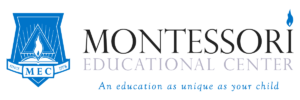MEC Upper Elementary Program
Upper Elementary Classrooms
Children of the upper elementary age group (fourth, fifth, and sixth graders) have a strong Montessori foundation. They are seekers of knowledge who know how to find information and apply what they have discovered. As they work through the academic curriculum, they are gaining computer skills, learning to collaborate with peers, formally present projects orally, and to manage their time.
Teachers work with students to develop weekly work plans so that they learn time management over longer periods of time. Students in the 9-12 class have the opportunity to practice conflict resolution, develop analytical reasoning, and to gain problem solving skills.
DAily Schedule
-
7:30 a.m.
Students are greeted by teachers -
8:00 a.m.
Morning Meeting -
8:30 a.m.
Uninterrupted work cycle - individual work within the classroom and lessons presented by the teachers -
11:30 a.m.
Lunch -
12:00 p.m.
Silent reading -
12:30 p.m.
Recess - free play -
1:00 p.m.
Uninterrupted work cycle - individual work within the classroom and lessons presented by the teachers -
2:40 p.m. - 3:00 p.m.
Dismissal time for full day students -
3:00 p.m. - 5:30 p.m.
Extended day students enjoy an afternoon recess and play time.
Curriculum
Math
Students continue to work with concrete Montessori materials until they are ready to move to abstraction. The math curriculum includes concepts, operations, drills, fractions, and logic problems.
Language
Language in the upper elementary room focuses on reading, grammar, writing, spelling, vocabulary, and poetry.
Geography
Geography studies build on lessons from lower elementary, and begin to focus on countries, flags, and cultures.
Music
Music helps children learn to communicate and express themselves non-verbally. Musical activities improve hearing and listening, coordination, and math skills.
Practical Life
Practical life describes an array of activities that promote independence, concentration, grace and courtesy, and a sense of responsibility.
Geometry
In upper elementary, children begin to learn about the connections between the visual aspects of geometry and numerical expressions. They apply what they’ve learned about perimeter, area, and volume to measuring real-life objects - including Montessori materials they’ve seen in their classrooms since they were three years old.
Spanish
Beginning in lower elementary and continuing through upper elementary, children at MEC are introduced to the fundamentals of the Spanish language.
Science
Building on concepts learned during lower elementary, science in the upper elementary classes continues in subjects such as zoology, botany, microscopic organisms, health sciences, and matter.
Art
The Montessori philosophy promotes freedom within limits, and this is also true of art activities. Children are encouraged to use creativity and explore the materials.
Montessori Materials
For Upper Elementary Students
Click on a material below to learn more about the Montessori materials used in upper elementary classrooms.
Trinomial Cube
Use of the trinomial cube builds upon work done sensorially in the primary environment, where the child internalized the pattern of the rectangular prisms that make up the cube. Each prism or group of prisms represents a term in the trinomial equation.
LEARN MORE
Pegboard
The pegboard has several uses both in Lower and Upper Elementary. It can be used for finding multiples of numbers and least common multiples in fractions, but the favorite use in Upper Elementary is for the squaring of numbers, and later, for the extraction of the square root of a number.
LEARN MORE
Sentence Analysis
Students in both lower and upper elementary environments utilize sentence analysis materials in order to diagram sentences. This allows the child to understand the functions of parts of speech and sentence elements in a sentence.
LEARN MORE
Schedule a Tour
Education is a natural process carried out by the child and is not acquired by listening to words but by experiences in the environment.
Dr. Maria Montessori
